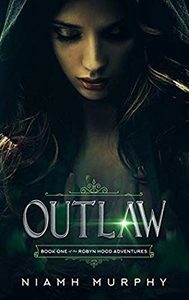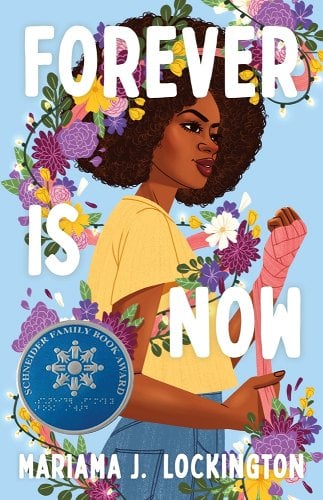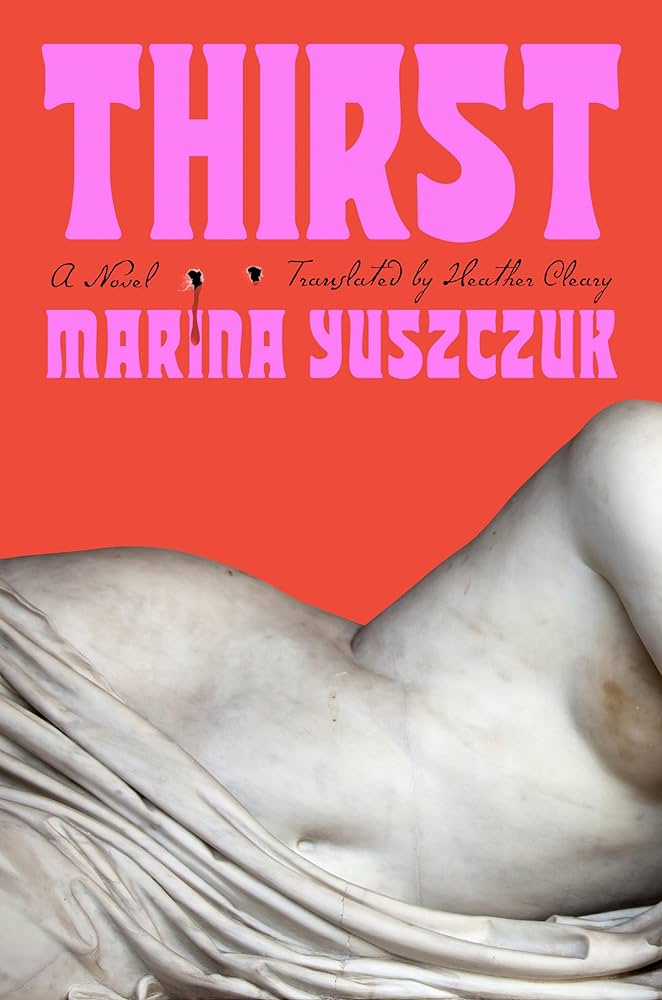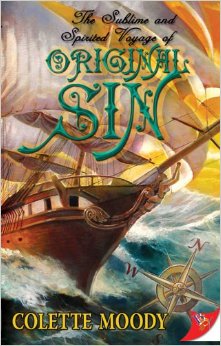Niamh Murphy had me with the title: Outlaw: A Lesbian Retelling of Robyn Hood. I didn’t need any more incentive to purchase this for my Kindle. Whenever there’s a new book with the promise of both lesbians and Robin Hood, I am bound to read it. My two primary reading interests are Robin Hood and lesbian literature, so there’s no getting around it. To my knowledge, this is the second lesbian retelling of Robin Hood. Or in this case, Robyn. (Marian by Ella Lyons is the other lesbian retelling, if you’d like to check it out!) Fair warning that I am a huge Robin Hood nerd, and this review reflects that.
Robyn Fitzwarren is the daughter of the Baron and Baroness of Loxley, just outside of Sherwood Forest. Marian de Staynton lives in the neighboring baronage of Leaford, and the two are childhood friends, and very close. Shortly after Robyn’s father departs on crusade with King Richard, a new sheriff is appointed over Nottinghamshire and Derbyshire and things start to turn sour. Robyn, feeling responsible for the well-being of her family, enters the sheriff’s archery tournament, determined to win two hundred silver so that her family can pay the unfair taxes levied against them. However, in an unpredictable string of events, Robyn finds herself and her family in danger.
You might notice that my plot synopsis included very little about Marian, and that’s because Marian, and her relationship with Robyn is not a primary focus for this book. Instead it focuses almost exclusively on Robyn’s commitment to her family, and her efforts to protect them from the sheriff. I like that the book does not ignore the existence of families and parents, as some YA books tend to do.
However, I have to admit that the title led me to believe that Marian would have a greater role to play, or at least that the romance would be explored. As it is, Robyn and Marian kiss only once, and Marian is only present in maybe ten scenes. Most of the romantic narrative comes in the form of Robyn thinking about her while Robyn is hiding out in Sherwood Forest.
There are some very sweet moments, including one where Robyn goes to sleep in Marian’s bed seeking comfort and safety. It was so sweet that I nestled down deeper into my pillow with a silly grin. Sadly, such scenes are not in abundance in this book.
In some ways, the lack of focus on the romance between them is refreshing. It gives their relationship time to develop at a much slower speed, which feels natural in many ways. But with “a lesbian retelling” in the subtitle of the book, I definitely expected more. A second book is in the works, and I’m hoping Marian will have a bigger role next time.
Niamh Murphy makes some interesting choices with the traditional Robin Hood story, especially with her sheriff. In fact, the sheriff seems like a genuinely nice guy! He is in favor of good sportsmanship and prefers to play by the rules. Rather than the sheriff as a primary antagonist, it is his wife, Maud, who seeks power and revenge. Unfortunately, the behind-the-scenes work that Maud does to overtax and harm the people of Nottingham goes unseen, and the sheriff gets most of the blame. He eventually does take on some of his more traditional characteristics, but I appreciated the slight departure from the usual inherently villainous sheriff.
Speaking of the sheriff, he is named for the same historical sheriff who was in power during King Richard’s absence! As soon as I read the name “William de Wendenal”, I had to smile. She also made use of the pagan character, “Green Man”, sometimes associated with Robin Hood, and instead applied Green Man-like qualities to her Little John character. Niamh Power did her research for many of the details in this book! My Robin Hood nerd heart was indeed happy. There is even a glossary linked at the end (although not included in the book itself) which explains some of the people, things, and locations mentioned in the book. While some Robin Hood books tend to be more medieval fantasy than historical fiction, I think Outlaw rest somewhere comfortably in between.
That being said, the book includes such language as “thee”, “thou”, and “art” to preserve a medieval style of speech and dialect. Personally, I found this to be more distracting than immersive, and it didn’t work for me. Things like “Cover me arse, will thou?” and other similar phrases didn’t sit well with me in the way they blend modern speech with older English. The writing itself, outside of the dialogue, also has a modern voice, and skipping from modern to older, while not difficult to follow, didn’t feel cohesive.
Sadly, Robyn didn’t work for me as a character. I didn’t feel like I understood her choices, and when something went wrong, her reactions felt over the top. The whole book felt like a competition for which new thing was the Worst Thing To Ever Happen, and resulted in Robyn having a breakdown every fifty pages or so. She was the main character, and was supposed to be a version of Robin Hood, but she wasn’t much of a hero. I don’t mind unlikely heroes, but the way she would constantly break down and then run away from friends and family because they “couldn’t understand” and she “had to deal with it alone” felt immature rather than vulnerable. It certainly didn’t come across as strength, either. I didn’t even particularly care enough to root for her most of the time, largely due to a lack of believability.
As a Robin Hood retelling, I do think this one works better than Marian by Ella Lyons. The Robin Hood elements are there, and used to guide and inform the story. As a Robin Hood enthusiast, I enjoyed this! It does interesting things with the legend, and some smaller details of the lore and history are included. If you’re specifically looking for a lesbian retelling of Robin Hood, this might work for you. For casual readers, however, I’m not sure this will be everyone’s cup of tea.



